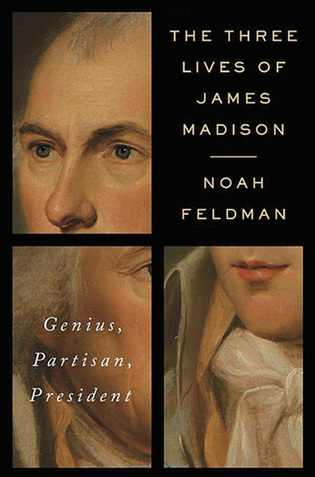 loading
loading
Reviews: January/February 2018 View full imageThe Three Lives of James Madison: Genius, Partisan, President Jonathan Alter is at work on a biography of Jimmy Carter. James Madison, the brilliant hypochondriac son of a Virginia planter, studied at Princeton in the early 1770s. Madison was an Anglican, the majority religion in Virginia, but at Presbyterian Princeton he was in the minority. Because Presbyterianism was itself a minority in the colonies, Princeton encouraged its students to respect religious dissidents, and Madison adopted religious tolerance as his main intellectual interest. After graduation, he treaded water as a tutor and enlisted in the Revolutionary War, but saw no action because of headaches. Connections helped him become a delegate to the 1776 constitutional convention, where, at 25, he authored what Noah Feldman calls “the first official constitutional recognition of an inherent human right to religious liberty” anywhere in the world. From religious freedom sprang all the other freedoms we enjoy. Feldman’s The Three Lives of James Madison: Genius, Partisan, President is a superb mix of impeccable scholarship and readable—often compelling—narrative. Audiences who know him mostly as a pro-slavery foil in the musical Hamilton may be surprised by the range of his achievements. The man Feldman calls the Einstein or Newton of “a new kind of governmental physics” proposed a convention to replace the failing Articles of Confederation; wrote most of the US Constitution (though he was disappointed with several sections); articulated its meaning in 29 essays—22 of which were written in a feverish six-week period—that were later collected in the Federalist Papers; helped write a Bill of Rights and secure ratification; reversed his opposition to factions—one of the original animating ideas of the Constitution—to create the first political party, in order to mobilize partisan opposition to Alexander Hamilton; and, with the help of his remarkable wife, Dolley, pioneered presidential wartime leadership during the War of 1812. Feldman posits that Madison had “three lives.” He also argues that Madison’s long personal friendships with rivals became a model for “reasoned disagreement among reasonable people” that was built into the checks and balances of the Constitution. In that sense, Madison, though he helped found the two-party system and originated the now-daily use of the Constitution as a political cudgel, is especially relevant in a time of exceptional rancor.
|
|